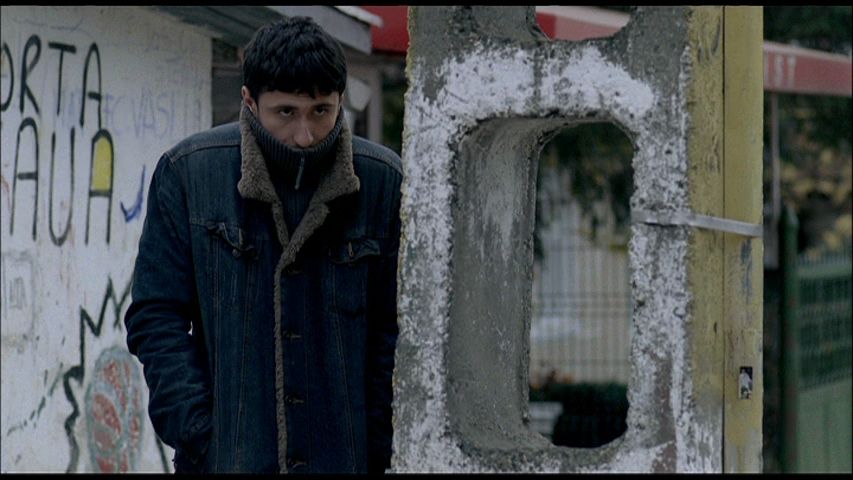"Police Adjective" and Attunement to the Significance of Things
DOI:
https://doi.org/10.58519/aesthinv.v3i2.11935Keywords:
aesthetics, meaning, criticism, Corneliu Porumboiu, Ludwig Wittgenstein, filmAbstract
In this paper I consider Corneliu Porumboiu’s Police, Adjective (Romania, 2009) as an instance of a puzzling work of art. Part of what is puzzling about it is the range of extreme responses to it, both positive and negative. I make sense of this puzzlement and try to alleviate it, while considering the film alongside Ludwig Wittgenstein’s arguably puzzling “Lectures on Aesthetics” (from 1938). I use each work to illuminate possible understandings of the other. The upshot is that it is is plausible to regard both as engaged, in part, in preparing us to make sense both of themselves, and then also of other works.
Downloads
References
Baz, Avner. 2012. When Words Are Called For. Cambridge: Harvard University Press.
Bouwsma, O. K. 1982. “A New Sensibility.” In Toward a New Sensibility, edited by J. L. Craft and Ronald E. Hustwit, 1–4. Lincoln and London: University of Nebraska Press.
Cavell, Stanley. 1976a. “The Availability of Wittgenstein’s Later Philosophy.” In Must We Mean What We Say?, 41–67. Cambridge: Harvard University Press.
--- 1976b. “Music Discomposed.” In Must We Mean What We Say?, 167–196. Cambridge: Harvard University Press.
--- 2004. “The Investigations’ Everyday Aesthetics of Itself.” In The Literary Wittgenstein, edited by John Gibson and Wolfgang Huemer, 21–33. New York: Routledge.
Danto, Arthur. 1964. “The Artworld.” Journal of Philosophy, vol. LXI.
--- 2014. “2007 Lecture.” In Remarks on Art and Philosophy. Wolfville, NS, Canada: Acadia Summer Arts Program.
Delistrady, Cody. 2018, May. The Making of Guernica. http://www.blouinartinfo.com/news/story/3041089/the-making-of-guernica. Accessed 28.5.2018.
Elkins, James. 2008. “On the Absence of Judgment in Art Criticism.” In The State of Art Criticism, edited by James Elkins, 71–96. New York: Routledge.
Greve, Sebsastian, and Jakub Macha. 2016. “The Good, the Bad, and the Creative.” In Wittgenstein and the Creativity of Language, edited by Sebsastian Greve and Jakub Macha, 3–13. New York: Palgrave Macmillan.
Kuehner, Jay. 2012, Spring. Corneliu Porumboiu. http://cinema-scope.com/cinema-scope-magazine/corneliu-porumboiu/.
Melville, Stephen. 2008. “Is This Anything? or, Criticism in the University.” In The State of Art Criticism, edited by James Elkins, 111–126. New York: Routledge.
Mulhall, Stephen. 2008. On Film. Second Edition. New York: Routledge.
Scott, A. O. 2009. “Jiggers: Here Comes the Dictionary!” New York Times, Dec. http://www.nytimes.com/2009/12/23/movies/23police.html, Accessed 1.9.2018.
Wartenberg, Thomas. 2016. “Film as Philosophy: The Pro Position.” In Current Controversies in Philosophy of Film, edited by Katherine Thomson-Jones. New York: Routledge.
Weissberg, Jay. 2009. “Police, Adjective.” Variety, Apr. Accessed at 27.5.2018.
Wimsatt, W. K., and M. C. Beardsley. 1946. “The Intentional Fallacy.” The Sewanee Review 54, no. 3.
Wittgenstein, L., G.H. Wright, H. Nyman, and P. Winch. 1984. Culture and Value. Chicago: University of Chicago Press.
Wittgenstein, Ludwig. 1966. “Lectures on Aesthetics.” In Lectures on Aesthetics, Psychology, and Religious Belief, edited by Cyril Barrett, 1–40. London: Blackwell.

Downloads
Published
Issue
Section
License

This work is licensed under a Creative Commons Attribution 4.0 International License.
Authors who publish with this journal agree to the following terms:
Authors retain copyright and grant the journal right of first publication with the work simultaneously licensed under a Creative Commons Attribution License that allows others to share the work with an acknowledgement of the work's authorship and initial publication in this journal. Note: up to volume 4 issue 1, an incorrect copyright line appears in the PDFs of the articles.
Authors are able to enter into separate, additional contractual arrangements for the non-exclusive distribution of the journal's published version of the work (e.g., post it to an institutional repository or publish it in a book), with an acknowledgement of its initial publication in this journal.
Authors are permitted and encouraged to post their work online (e.g., in institutional repositories or on their website) prior to and during the submission process, as it can lead to productive exchanges, as well as earlier and greater citation of published work (See The Effect of Open Access).





